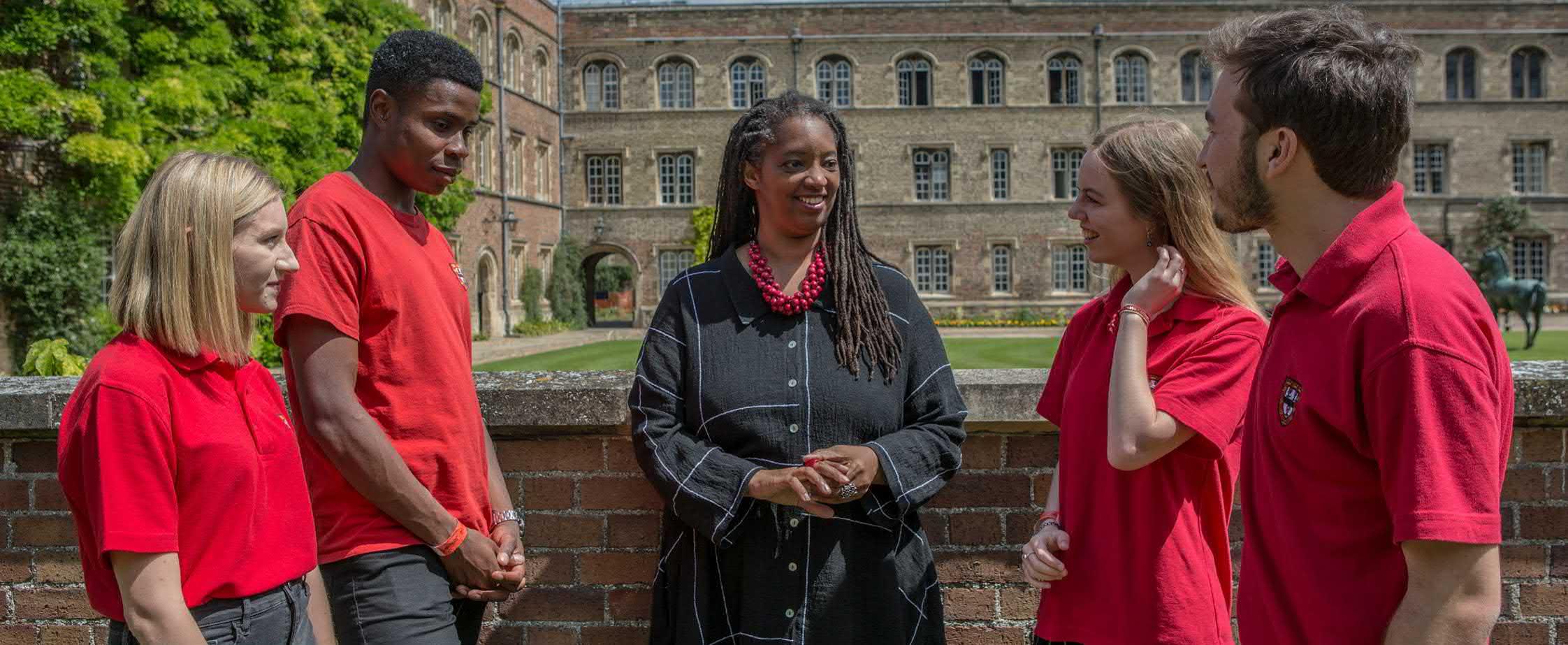
2 minute read
Governance and stakeholders
Governance
Jesus College has an active Environment Committee, with representatives from the Fellows and Research Associates, staff, and the Jesus College Student Union (JCSU) and graduate (MCR) Green Officers. It meets every Term to develop and share best practice with all College departments. The Committee reviews environmental policies, accompanying strategies and guidance. It also sets up working groups to consider and report on particular opportunities to reduce our environmental impact. The College Council receives reports from the Committee on progress, policies and targets in the College, and on the reports, recommendations and requirements from outside bodies (such as any acting under environmental legislation).
This first version of the Sustainability Strategy outlines our recent history and immediate intent. With time, experience and scientific data, it is envisaged that this document will evolve into a more statistical targetbased paper, including increased focus on priorities from 2023-2030.
If you have any ideas about how to make Jesus College a more sustainable place to live, please email the Environment Committee via environment@jesus.cam.ac.uk.
Stakeholder engagement
The relationships between the different stakeholders within the College, with a wide range of views on the subject, is critical. Consultation and collaboration, using reliable data and science, will therefore be essential in order to prioritise and facilitate sustained change.
Maximising benefit from the University resources and talent pool is critical. We have strong relationships across the University, and will continue our collegiate approach to sharing best practice as a member of the University.
One example of our collaborative approach is our work with the Cambridge Institute for Sustainability Leadership (CISL) who helped us to consider how to manage our historic estate to achieve our ambitious sustainability targets for the future. We have hosted a series of events in the College on subjects related to sustainability, which have allowed us to strengthen relationships and learn from experts from both the education and industry sectors.
The Bursar is a member of the University Finance Committee, which has oversight of the Cambridge University Endowment Fund, and sits on the Bursars Planning Sub-Committee, a key contact group for the development of planning policy in Cambridge. He contributes to discussions on responsible and sustainable investment involving the Colleges and the University, and leads a group of Colleges looking at sustainability in relation to their rural landholdings.
The Bursar will soon be taking up a position on the Finance Committee Financial Investments SubCommittee until 2024 wich includes financial oversight of CUEF.
The Domestic Bursar sits on the Bursars Environment Sub Committee, is a Trustee of the Cambridge Forum for the Construction Industry as well as being a member of the Cambridge University Transport Working Party. All of these groups provide access to leading information and trends, as well as the chance to influence decision-making across the city.










